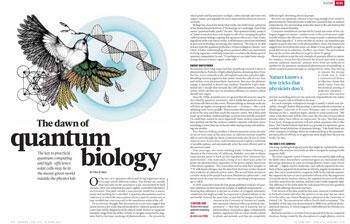rakovsky
Registered Member
The Old Testament / Tanakh includes appealing prophecies like dating for Messiah's arrival (Daniel 9), descriptions of his death (According to Maimonides, this is the Servant's "crushing" in Isaiah 42; Christianity sees it in Isaiah 52-53), and the future resurrection of the dead (Isaiah 26). What makes those prophecies reliable, and how does the prophecy function?
It seems that theoretically, there could objectively exist such a thing as a gift of prophecy, and that the Lord could guide the Biblical prophets into true predictions. But science seems skeptical about the reliability to perform foretelling supernaturally. And it seems that there are moral people whom God inspires in the world (like civil rights activists), but I don't know that their inspiration and morality means they become reliable precise oracles for the nation's political future, like giving a 30 year deadline for passing certain laws.
The Catholic New Advent Encyclopedia distinguishes prophets' intuition and sense of prophecy and actual, certain prophecies:
Maybe prophesying is not necessarily from God, even when the prophet is a moral, inspired believer like the ancient prophets were? In that case, it seems we have to evaluate whether foretelling is scientifically reliable. Otherwise, how do we know that the Biblical prophecies must be correct?
The Encyclopedia also talks about nonChristian prophecy as sometimes being legitimate:
And it even says that post-Biblical prophecies by even inspired Christian saints could be mistaken:
It seems that theoretically, there could objectively exist such a thing as a gift of prophecy, and that the Lord could guide the Biblical prophets into true predictions. But science seems skeptical about the reliability to perform foretelling supernaturally. And it seems that there are moral people whom God inspires in the world (like civil rights activists), but I don't know that their inspiration and morality means they become reliable precise oracles for the nation's political future, like giving a 30 year deadline for passing certain laws.
The Catholic New Advent Encyclopedia distinguishes prophets' intuition and sense of prophecy and actual, certain prophecies:
http://www.newadvent.org/cathen/12473a.htmThe prophecy is imperfect when the recipient does not know clearly or sufficiently from whom the revelation proceeds, or whether it is the prophetic or individual spirit that speaks. This is called the prophetic instinct, wherein it is possible that a man may be deceived, as it happened in the case of Nathan who said to David when he was thinking of building the Temple of God: "Go, do all that is in thy heart, because the Lord is with thee" (2 Samuel 7:3). But that very night the Lord commanded the Prophet to return to the king and say that the glory of the building of the temple was reserved, not for him, but for his son. St. Gregory, as quoted by Benedict XIV, explains that some holy prophets, through the frequent practice of prophesying, have of themselves predicted some things, believing that therein they were influenced by the spirit of prophecy.
Maybe prophesying is not necessarily from God, even when the prophet is a moral, inspired believer like the ancient prophets were? In that case, it seems we have to evaluate whether foretelling is scientifically reliable. Otherwise, how do we know that the Biblical prophecies must be correct?
The Encyclopedia also talks about nonChristian prophecy as sometimes being legitimate:
St. Thomas, in order to prove that the heathens were capable of prophecy, refers to the instance of the Sybils, who make clear mention of the mysteries of the Trinity, of the Incarnation of the Word, of the Life, Passion, and Resurrection of Christ. It is true that the Sybilline poems now extant became in course of time interpolated; but, as Benedict XIV remarks, this does not hinder much of them, especially what the early Fathers referred to, from being genuine and in no wise apocryphal.
And it even says that post-Biblical prophecies by even inspired Christian saints could be mistaken:
If Christian saints' predictions could be mistaken, it makes me uncertain how reliable the Biblical ones must be.The real test of these predictions is their fulfilment; they may be only pious anticipations of the ways of Providence, and they may sometimes be fulfilled in part and in part contradicted by events. The minatory prophecies which announce calamities, being for the most part conditional, may or may not be fulfilled. Many private prophecies have been verified by subsequent events, some have not; others have given rise to a good deal of discussion as to their genuineness.




